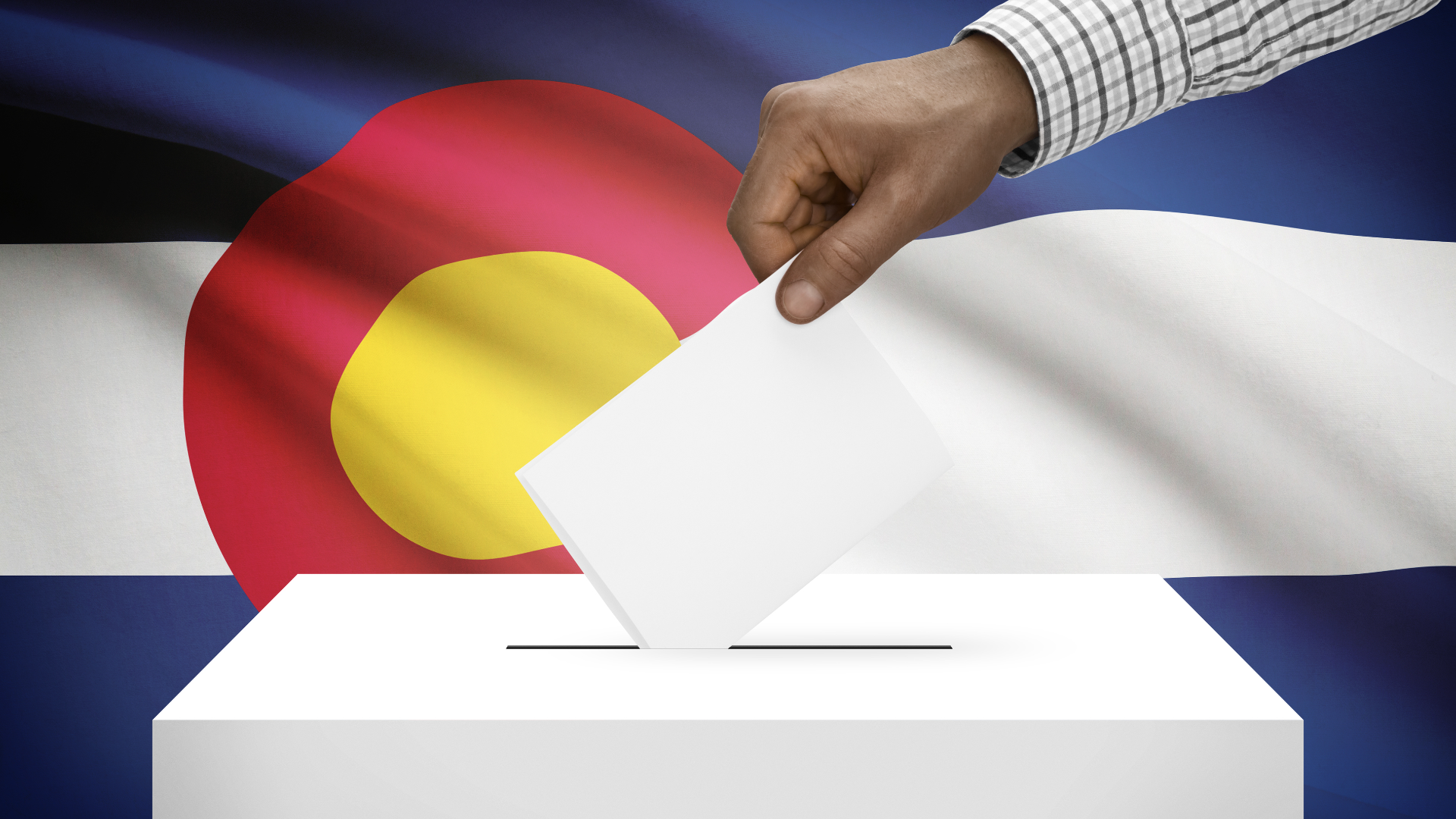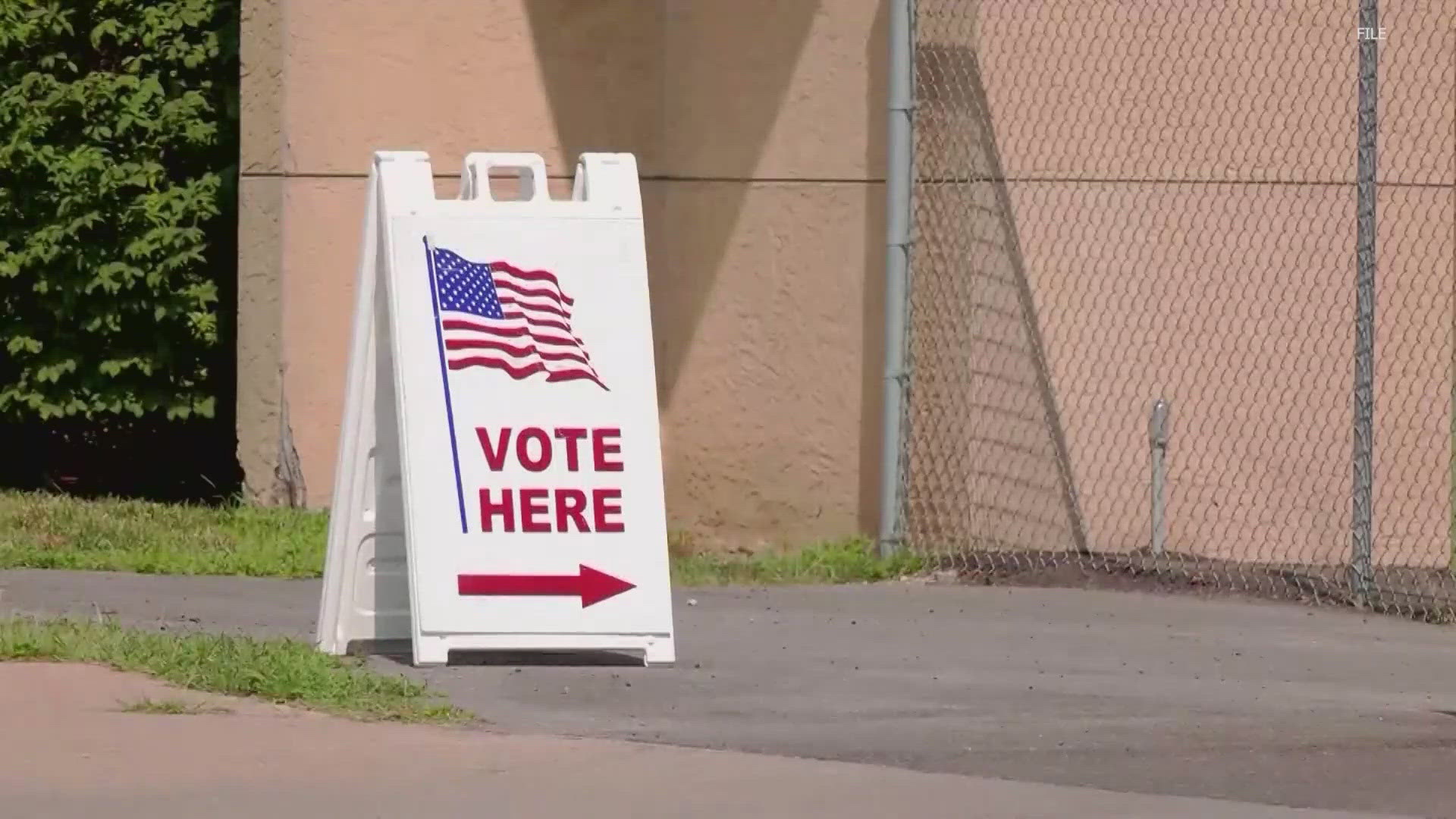Everything you need to know to cast your ballot in Colorado on Election Day
From voter registration to tracking ballots, here's the latest information on the 2024 general election in Colorado.

The 2024 general election is on Nov. 5. Colorado voters will make decisions on the president ticket, several U.S. congressional seats, 14 statewide ballot measures, local lawmakers and ballot issues.
This voter guide will help you through the process.
Here's what to know about:
- How to register to vote
- Getting a ballot
- Learning about candidates and issues
- Turning in your ballot
- Making sure your vote is counted
- Tracking election results
Chapter 1 Register to vote
First, you can check if you're already registered to vote in Colorado at the Secretary of State's website.
If you have applied for or renewed a driver's license since May 2020, you were likely automatically registered to vote under the state's Automatic Voter Registration system. To be automatically registered, eligible voters only need to provide identification that shows citizenship.
If you registered to vote in the last election but you didn't cast a ballot, you are still registered and eligible to vote.
You can register at www.GoVoteColorado.gov if you have a valid Colorado driver's license, state-issued ID card or Social Security number. If you don't have one of those, you can complete and submit a paper registration form in English or Spanish.
You can also register at a state Division of Motor Vehicles (DMV) office when you apply for a driver's license or when updating driver's license information.
Other places that offer registration are:
- Offices that provide public assistance, including state-funded programs that provide services to persons with disabilities.
- U.S. Armed Forces recruitment offices.
- Any federal, state or local office or nongovernmental office that chooses to provide voter registration services.
- A voter service and polling center.
Voters in Colorado can register in person at a voter service and polling center through Election Day.
Chapter 2 Getting a ballot
Colorado voters receive mail-in ballots at the addresses listed on their voter registrations, which is why it's important to check whether your information is up to date.
Voters also receive the 2024 Blue Book, a ballot information booklet that provides voters with the text, title and a fair and impartial analysis of each initiated or referred constitutional amendment, law, or question on the ballot.
If you're registered to vote in Colorado, you will receive the Blue Book in the mail.
On Oct. 11, the Secretary of State's Office began sending mail-in ballots out to voters.
If you haven't received your ballot, you can check its status here.
If you lost your mail ballot, you can ask for a replacement from your county clerk or vote in person at a polling site.
Chapter 3 What's on the ballot
Across the country, voters are deciding who will be the next president of the United States. In Colorado, there are state-specific issues we'll be deciding as well.
This November's election includes 14 statewide ballot measures:
Referred by the legislature
- Amendment G - "Modify Property Tax Exemption for Veterans With a Disability"
- Amendment H - "Judicial Discipline Procedures and Confidentiality"
- Amendment I - "Constitutional Bail Exemption for First Degree Murder"
- Amendment J - "Repealing the Constitutional Definition of Marriage"
- Amendment K - "Modify Constitutional Election Deadlines"
- Proposition JJ - "Retain Additional Sports Betting Tax Revenue"
- Proposition KK - "Firearms and Ammunition Excise Tax"
Citizen-initiated
- Amendment 79 - "Right to Abortion"
- Amendment 80 - "School Choice in K-12 Education"
- Proposition 127 - "Prohibit Trophy Hunting"
- Proposition 128 - "Concerning Eligibility for Parole"
- Proposition 129 - "Establish Qualifications and Registration for Veterinary Professional Associate"
- Proposition 130 - "Funding for Law Enforcement"
- Proposition 131 - "Concerning Conduct of Elections"
Three seats on the University of Colorado Board of Regents are up for election, as well as four seats on the State Board of Education. Coloradans are also voting on the representatives they'll send to the U.S. Congress.
Looking for a list of who's on the ballot? You can read it here.
Coloradans will also be voting on representatives and senators for the state legislature, as well as voting on local ballot issues.
If you choose to leave some questions blank on your ballot, your other votes will still be counted.
Chapter 4 Turning in your ballot
After you've filled out your ballot, drop it off at a designated drop-off location or drop box. Don't forget to sign the envelope before you drop it off.
Ballots must be received by your county clerk by no later than 7 p.m. on Election Day, Nov. 5. Postmarks do not count.
If you'd prefer, you can vote in person at designated polling sites.
If you choose to vote in person, you can return your unused mail ballot at a voter service and polling center. Even if you don't return your unused mail ballot, you can still vote in person. Once you've voted in person, the county clerk won't accept the ballot that was mailed to you.
When voting in person, you must provide identification such as a Colorado driver's license or state ID. A full list of acceptable forms of identification is here.
All voters who are in line at their polling station by 7 p.m. on Election Day are allowed to vote no matter how long it takes for each person to cast their ballot.
To check the status of your ballot, visit www.GoVoteColorado.gov. This will show whether your ballot has been received and counted.
Chapter 5 Tracking election results
The state and counties will start announcing election results after polls close at 7 p.m. on Election Day.
Results will be available at the Colorado Secretary of State's Office website and each county's election website. 9NEWS will have live coverage of results, which can also be found at 9news.com.
The results of many ballot questions will be decided on election night, but it could take several days to get the results of closely contested questions.
Nov. 13 is the last day for ballots cast by military and overseas voters to be received by county clerks, and Nov. 14 is the last day for verification and counting of provisional ballots.
After elections, the state is required to conduct what's known as a "risk-limiting audit." These ensure that vote tabulation systems are accurate. The results are available publicly online.
After the election, "interested parties" can request a recount at their own expense. Those must be requested by Dec. 3 and completed by Dec. 12.


